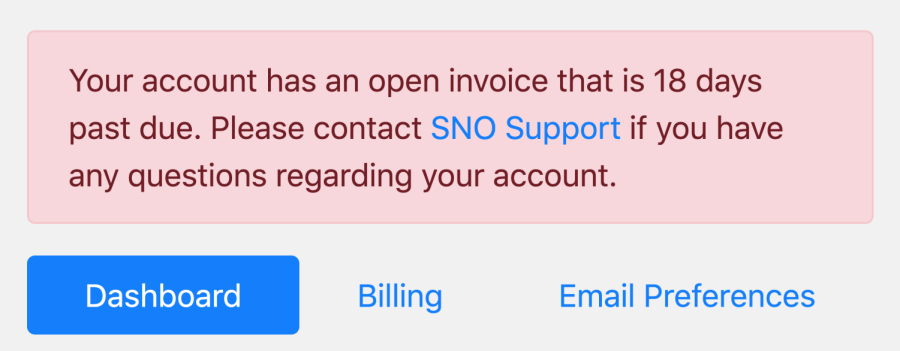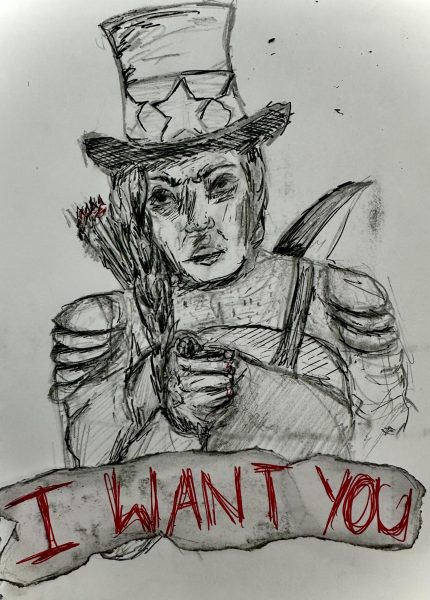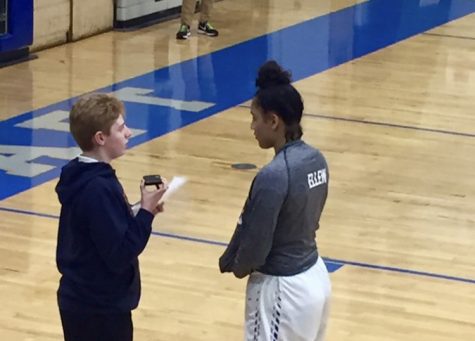STAFF EDITORIAL: CPS’s SOPPA policy is choking students’ learning — and The Champion
What’s at the heart of the Student Online Personal Protection Act (SOPPA) is an admirable idea. Surely everyone agrees that it is vitally important to ensure the personal data of students is protected — but in this case, good intentions become destructive practices. This difficulty extends not only to The Champion, but to all CPS students who have come to rely on the newly restricted learning technology they are accustomed to.
The program used statewide and nationally to run online student publications is SNO, Student Newspapers Online. It is a small and responsive company and without it, the majority of The Champion’s circulation would end up in trash cans, forgotten after readers finish.
Because of it, The Champion’s work, and the portfolios of many student journalists applying to college and jobs, is preserved in perpetuity — acting also as an historical archive for happenings at Lane and reference tools for research on past school events.
But currently, the Champion’s grip on the tool we rely so much on is slipping.
The fault lies not necessarily with the law itself. Other Illinois school districts will presumably be allowed to experience games of Kahoot, pass their trigonometry and Algebra classes with Desmos, teach a micro-architecture class, check for plagiarism — or even publish and run a student newspaper.
The fault lies with CPS itself, and the backlogged system it has created which has mired us in uncertainty.
In every Illinois school district other than CPS, journalism, math, art and computer science classes will continue unfettered by what the district would probably call its greatest attempt at privacy — but what we call an onerous bureaucracy.
CPS often touts empty phrases as a substitute for substantive policy. Its common slogan of choice: Equity, a form of equality that takes into account the limitations of a group to define “fairness” and distribution of needed resources accordingly. What CPS has accomplished, in effect, is a type of de facto inequity by unwittingly guaranteeing suburban districts easier access to the right of a free press — while city schools languish in difficulty.
More pertinent to all students is the potential for the active gutting of curriculums (if websites and applications even make it through the backlogged approval process) leaving independent, often smaller, companies caught up in regulatory purgatory with neither the money nor the cachet to easily remove themselves. This, among many others, is one of the obstacles preventing Chicago students from reaping the benefits of a 21st century education that their suburban peers enjoy.
The Champion provides news for a school whose enrollment is the size of a small town. It has been the first to report on the appointment and departure of several principals and other school officials, perennial labor issues and strikes, and even other misguided CPS policies. We’ve covered the lives and deaths of many who have passed through Lane’s halls. Often we are the only publication covering LSC meetings — where elected changemakers have a hand in some of the school’s most significant decisions, including how to use finances.
Currently SNO is wrapped in a seemingly impenetrable tangle of CPS red tape. We are not allowed to publish online, meaning all news at the moment must be delayed until the end of each month, when we can print our physical copy.
But even this is a tentative goal.
The layout process — the time when physical newspapers are actually put together — is hampered. As of now, journalism is using a free software called Scribus to layout the physical print edition, instead of the usual Adobe InDesign, the reason why our paper looks different to how it usually is.
Outside of the journalism class, teachers who are especially reliant on certain websites may, and probably are, being forced to pay out-of-pocket for programs that are integral to their curriculum, and in some cases, are the curriculum; a concept not unfamiliar to teachers who often have to shell out their own money for everything from markers to hand sanitizers and wipes for dirty pandemic-weathered desks.
It’s a shame, therefore, that comprehensive and common-sense data regulation — which has been found lacking in the wake of massive national breaches exposing personal information like emails, addresses and names — is being marred by botched implementation and broken-down communication.
We ask that CPS revisit its onerous policy, and allow us the use of the tools which are necessary for education — and allow Chicago journalism, art, computer science, and math classes to continue.
Your donations directly fund the Lane Tech student journalism program—covering essential costs like website hosting and technology not supported by our school or district. Your generosity empowers our student reporters to investigate, write, and publish impactful stories that matter to our school community.
This website is more than a publishing platform—it's an archive, a research tool, and a source of truth. Every dollar helps us preserve and grow this resource so future students can learn from and build on the work being done today.
Thank you for supporting the next generation of journalists at Lane Tech College Prep!





